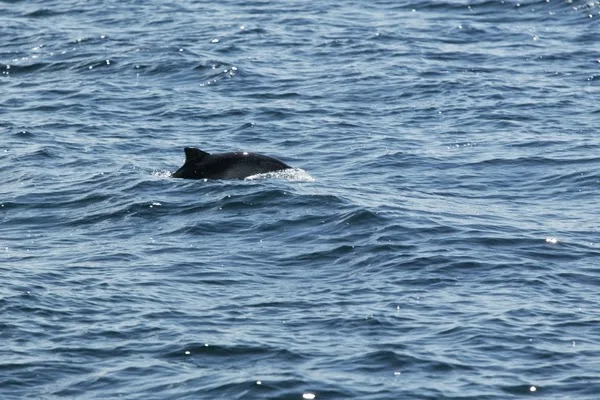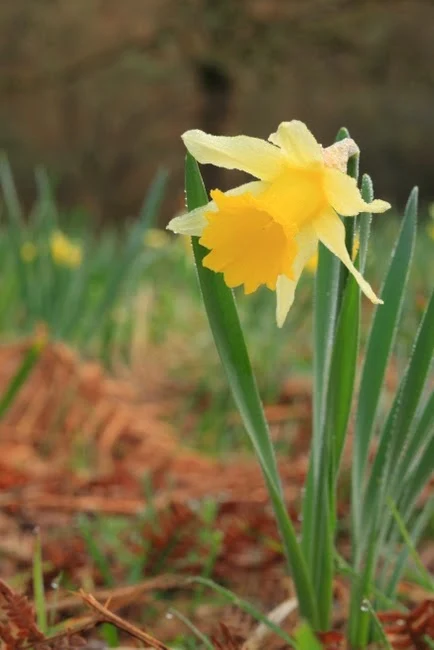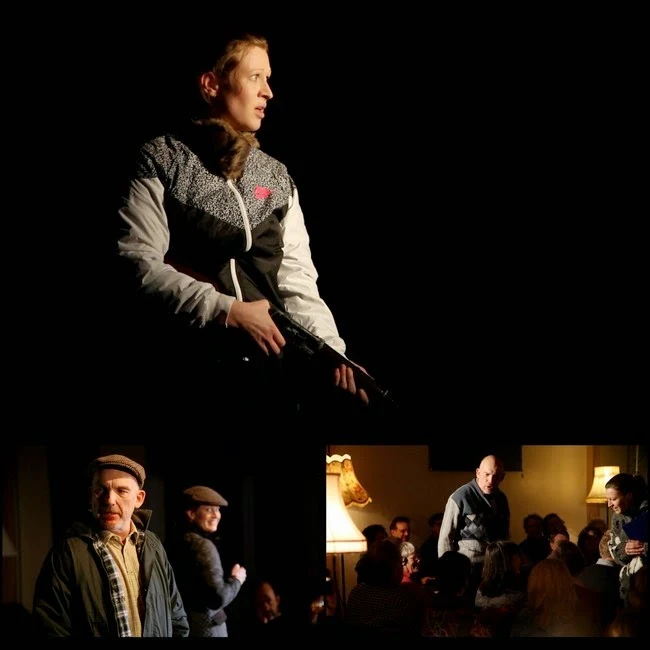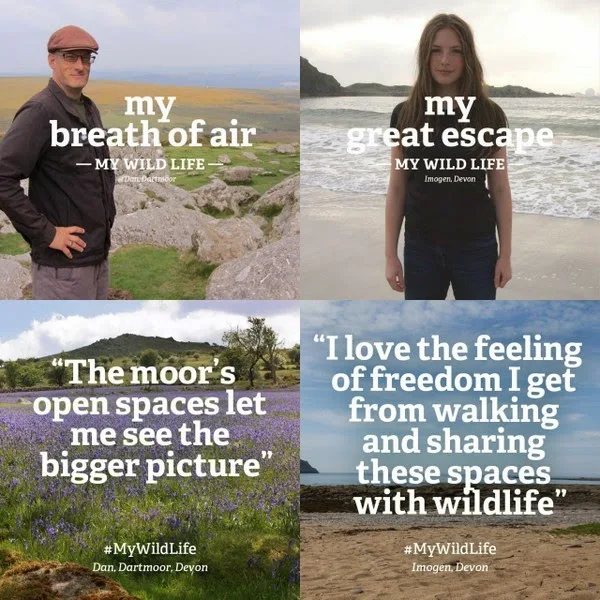The
long-awaited consultation on the next stages of Marine Conservation Zone
designation in English and non devolved waters is launched today. But
with only 23 out of a possible 37 sites included, The Wildlife Trusts are
frustrated at the lack of ambition shown by the Government.
Joan
Edwards, The Wildlife Trusts’ Head of Living Seas, said: “We are
bitterly disappointed that the Government has opted to consult on just 23 new
Marine Conservation Zones and that some very important areas for marine
wildlife have been dropped from the list. We are particularly
frustrated that a number of sites – including in the Irish Sea - have been
removed because of the likely ‘economic cost’.
“The
Wildlife Trusts believe this is a missed opportunity to achieve longer-term
gains that will benefit marine biodiversity and fishing. Ultimately an
economic activity that is based on over-exploitation, beyond the ability of the
resource to renew itself, is not sustainable and has no long-term future.
In Devon the news of two new recommended MCZs was
met with a mixed reaction by Devon Wildlife Trust. While the news of more
protection for North Devon’s marine wildlife was welcomed, The Trust reflected
on missed opportunities elsewhere. Devon Wildlife Trust’s Richard White said:
“We are
pleased that Government has recognised the value of North Devon’s marine life
by recommending two areas for protection.
These two new proposed Marine Conservation Zones at Bideford to Foreland
Point and Hartland Point to Tintagel are home to a stunning variety of marine
life. Their collections of corals and sponges form a beautiful backdrop to
shoals of colourful fish. All will
benefit from the protection provided by becoming Marine Conservation Zones.”
“At this
stage today’s proposals for new MCZs are just recommendations and the
Government is now asking people their views on whether they should become a
reality. We’d urge anyone who cares about the future of the South West’s marine
life to back these MCZs and take part in the government’s consultation process.
Responding doesn’t take long via Defra’s website. It gives everybody an
opportunity to shape the future of our precious marine wildlife.”
“While
today’s announcement provides some good news we are very disappointed that we
still don’t have the network of areas of protection that our seas need. We hope
that this will be remedied by Government in the future.”
Professor of
Marine Conservation at the University of York, Callum Roberts, says: "The
decision not to create protected areas in the Irish Sea on the grounds of cost
to fisheries is ironic and misguided. Irish Sea fish stocks are among the most
heavily overexploited in the UK and are now on their last gasp. Two centuries of fishing with destructive
trawls and dredges has stripped the seabed of its fish and once-rich habitats
like oyster and horse mussel reefs. It
will remain impoverished without protected areas; it has a chance of recovery
with them. There is no in between."
The North
West Wildlife Trusts’ Marine Conservation Officer, Dr Emily Baxter, said: “The
muddy habitats of the Irish Sea are as diverse as the Amazon rainforest and
coral reefs. There are also living reefs
that support a wealth of species from sponges, crabs, lobsters, and anemones to
an array of seaweeds. At least 30
species of shark and a dozen species of cetacean (whales, dolphins and
porpoises) live in the Irish Sea, including the basking shark, the world's
second largest fish.
“By postponing
action to protect these areas yet again, the Government is leaving the Irish
Sea open to an environmental disaster.
“Supporting sustainable fisheries, instead of encouraging overfishing and
habitat destruction, would increase fish landings, generate more income and
create more jobs in the sector.
Decision-makers need to think of sustainable fisheries as an opportunity
for job creation and increasing the value of fisheries rather than an
environmental principal that comes at a price to the industry. Marine Conservation Zones are a vital part of
this process.”
Joan
Edwards explains: “Only this week, the
Government’s Natural Capital Committee published a report which shows that investment in nature makes obvious economic
sense. The Government must develop a comprehensive strategy to secure the recovery of nature in a generation. This must include the designation of a well managed and ecologically
coherent network of Marine Protected Areas.”
The Wildlife
Trusts will be responding to the Government consultation and plan to publish
our recommendations online in due course.
We will be urging the
public to have their say and respond to the consultation to help ensure no
further potential Marine Conservation Zones are lost. See www.wildlifetrusts.org/mcz
Marine
Conservation Zones protect threatened undersea habitats such as eelgrass
meadows, rocky reefs and deepwater canyons – and the animals that live in and
around them. These important sanctuaries for marine life remain at risk
until more areas offering effective protection are established. Marine Conservation Zones should protect the
species and habitats found within them from the most damaging and degrading of
activities such as scallop dredging and trawling, whilst mostly allowing
sustainable activity to continue.
Valley of Rocks, North Devon Photo copyright Nigel Hicks (All rights reserved)
Of the 37
sites listed below, 23 are now included in the current Marine Conservation
Zones consultation, which runs for 12 weeks from Friday 30 January 2015. The 23 sites are shown in bold black (we’re
disappointed the ones in red have been dropped – for site descriptions, please
see attached document):
Coquet to St Mary’s
|
Farne’s East
|
Fulmar
|
Runswick Bay
|
Compass Rose
|
Holderness Inshore
|
Cromer Shoal Chalk Beds
|
Swale Estuary
|
Dover to Deal
|
Dover to Folkestone
|
Offshore Brighton
|
Offshore Overfalls
|
Utopia
|
Bembridge
|
Norris to Ryde
|
Yarmouth to Cowes
|
The Needles
|
Studland Bay
|
Western Channel
|
Mounts Bay
|
Lands End
|
North-West of Jones Bank
|
Greater Haig Fras
|
Newquay and the Gannel
|
Hartland Point to Tintagel
|
Bideford to Foreland Point
|
North of Lundy
|
South of Celtic Deep
|
Celtic Deep
|
East of Celtic Deep
|
Mid St Georges Channel
|
North St Georges Channel
|
Slieve Na Griddle
|
South Rigg
|
West of Walney
|
Mud Hole
|
Allonby Bay
|
|
|
|
The centre-piece
of the landmark Marine & Coastal Access Act (2009) legislation was the
commitment to establish a network of Marine Protected Areas throughout UK seas;
a response to the widely acknowledged crisis facing the health, diversity and
productivity of our seas. While this
Parliament has seen the first designations, we remain a long way from the full
network.
127
recommended Marine Conservation Zones were chosen after two years of hard work
by more than one million stakeholders from all sectors of the marine
environment and at a cost of over £8.8 million to Government. Twenty
seven Marine Conservation Zones were designated in November 2013 as a first step towards achieving an
ecologically coherent network of areas which will protect and help to restore
the marine environment. In
February, Defra released a list of 37 sites, recommended by experts and
stakeholders, to be considered for a second tranche of Marine Conservation
Zones. The excluded areas were identified by the statutory
nature advisors as necessary to help fill current gaps in the network of
protected areas at sea and achieve ecological coherence. The Government is committed to a third
tranche, to complete the network, by 2016.

.jpg)






.jpg)